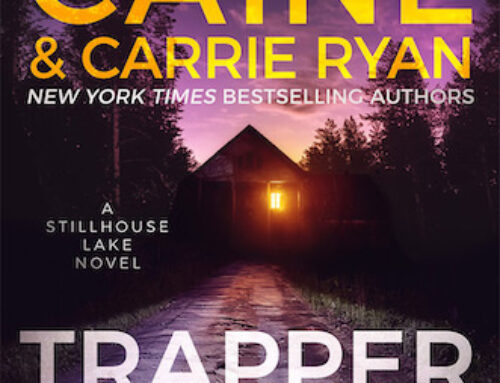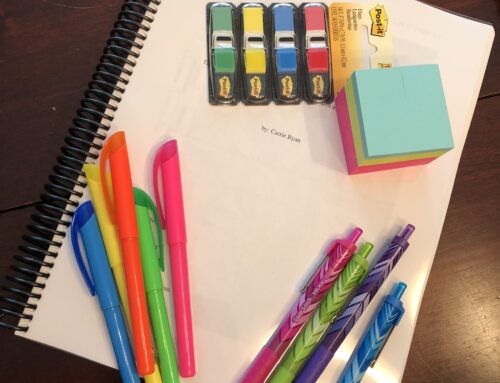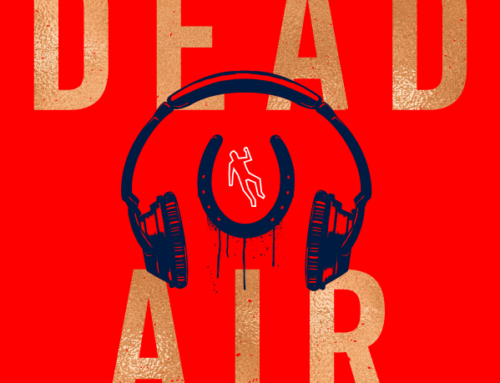As anyone who has talked to me or seen my facebook updates recently knows, I’m in the process of revising my second book for Delacorte Press (which is a loose sequel to The Forest of Hands and Teeth and will be coming out Spring 2010).
Thankfully, with the help of this article in The New Yorker, I know what I was doing wrong with the first draft. I was trying to be complicated. I was trying to be challenging and have complex themes. I wasn’t stuffing it full of morals (hard to fit in a “no drinking and driving” message when there aren’t cars and driving, but now I know I must find a way.) It’s a shame I’m just learning these things now because it’s too late to fix all of this in FHT!
But honestly, the greatest relief came when I read this line:
Surely we demand of “adult” writers (or perhaps what I really mean is “great” writers) higher moral and philosophical stakes?
The relief comes in knowing that I can lower my expectations for myself and my book. I’m not an adult writer, therefore I don’t have to strive for higher stakes. Whew! Talk about a load off!
Of course, my hope is that Mishan said “adult writers” and then realized that this was too narrow of a category and decided to broaden her description to mean “great writers.” However, I think this phrase can also be read to mean “adult writers = great writers.” Take your pick of interpretations (and notice that some prominent YA authors gave their own thoughts in the comments to the article).
What’s interesting is that my friend Diana Peterfreund sent me the link to this article because this is something we’ve been discussing and is something that she’s blogged about recently. I’d mentioned to her that sometimes when I talk to people about my book I won’t call it a YA but might call it a crossover instead. I’ve seen way too many times that people will perk up when they find out I have a book coming out only to go “oh,” and have their faces fall when I mention it’s young adult. Maybe they’re expecting sparkleponies or something and don’t understand what YA has become today.
Even my mom admitted feeling a little weird the first time she ventured into the YA section of the bookstore. I told her to get over it since that’s where my book would be (and trust me, come March 10 I have a feeling she’ll be setting up a tent in the YA section and shoving FHT into every hand that passes by… actually, she’ll prob just take over the loud speaker and say “My baby wrote a book!”). In fact, I think most of my family were a little taken aback when they read my book because I don’t think they know what YA has become and so they didn’t know what to expect.
And maybe that’s part of what’s going on. Maybe that’s why you have Caitlin Flanagan saying “I hate YA novels; they bore me” in a review that says two paragraphs later “Twilight is fantastic.” I couldn’t tell from the article what YA she’s read recently. Can she really say that The Hunger Games bored her? Graceling? Uglies? The Book Thief? Skin Hunger? The House of the Scorpion? Little Brother? And if it’s vampire romances she finds fantastic, what about the Vampire Academy series by Richelle Mead that’s been hitting the NYT list?
When someone says something so qualitative as “I hate YA novels; they bore me,” I just have to wonder what YA novels they’ve been reading. Because honestly, I think YA novels these days are the best they’ve ever been! To me YA novels are incredibly complex and dynamic and daring. I feel like I see YA authors take more risks than adult authors.
I don’t have as much of a problem with someone hating YA novels or calling YA books “facile” or “having uncomplicated themes and morals” or “boring” or merely “light and fun reads” and having lower moral and philosophical stakes if they’d actually read enough YA to form an opinion. Of course, perhaps the people in the article *have* read tons of YA and legitimately feel that way and perhaps I should give them that benefit of the doubt.
And yet, I cannot honestly believe that anyone could read Hunger Games or Looking for Alaska or The House of the Scorpion or any other number of YA novels out today and think that YA is facile, uncomplicated, light and having low stakes. Instead, I think most of the opinions expressed in that article are born out of ignorance, of hazy memories of what they read back in high school and what they *think* YA is like today based on a few ads for Gossip Girl on the CW.
I feel as though some people feel the need to denigrate all of YA as somehow being “lesser than.” And yet at the same time, if you ask these same people to distinguish between YA and adult, they rarely can. Just look at the abovementioned article to see how difficult it is for them to decide what makes something YA. Take for example this distinction: “I assume that anything branded ‘young adult’ needs… to be not too long or challenging”
Really? Really? Really? I’m just agog at this one because at the very least you don’t have to read any YA but just glance at a YA shelf or two to realize that length is not the dividing line between YA and adult. Or remember that teens are reading Faulkner and Shakespeare (and Faulkner ranks up there in the challenging spectrum).
You know what divides YA and adult? Which shelf someone decided to put it on. And you know how they probably made that decision? They put it on whichever shelf will help them sell more copies. There are lots of books being published as YA today that would have been published as adult books 10 years ago because YA is doing well and sales have increased while adult sales have decreased.
I wear my YA badge with pride. But I also know that some people are going to write me and my book off the minute they hear it’s YA. I’m fine if they write me and FHT off, I’d just rather they do it after they’ve read my book rather than jumping to conclusions based on a marketing label or where it’s shelved.





Hi! (I’m a long time lurker of your blog.)
Something a bit like this happened to me when a man I was serving (I work in a bookstore) asked me what books I was reading lately. I shrugged and said, “Well, actually I’ve been reading a lot of teen books lately–“
And he turned and asked my co-worker on the other till what she’d been reading while I was still talking.
At which point I gave him a pointed look and continued coldly, “–but I have reread Obama’s memoir which I really enjoyed and you might like it if you’ve been following the US election.”
Unfortunately, he only continued to be rude until he left the store, but I get a lot of reactions like that when people realise how much YA I read. Even now, I have aunts and uncles who stare at me blankly when they realise I’ve read the books I’m suggesting as potential gifts (shouldn’t I be doing that anyway?). It’s like they all assume someone should be cut off from teen books the minute they reach eighteen.
It’s horrible, and an assumption my co-workers and I have to constantly struggle against. I could name six YA books I’ve read this year which I really enjoyed, and two adult (and supposedly ‘better’) books that disappointed me.
YA has changed so much even in the last decade, and I think it’s only going to get better. Hopefully, especially with the growing crossover appeal, YA books will continue to shuck off the assumption that older readers should be ashamed to admit they read, write, and enjoy it.
Hey Helen — thanks for sharing your experience! It’s just an interesting situation because I bet if you took a lot of the current YA books and just put them on the adult new releases table people wouldn’t realize they were “YA.” Just look at The Book Thief — it was pubbed as an adult book in Australia and YA here. To me a good book is a good book no matter where it’s shelved!
Great post!
Esquire and Jezebel made lists of books that men and women should read:
http://www.insearchofgiants.com/2008/12/reading-for-genders.html
If those are “adult” books, I’ll take YA any day. (And mostly I do.)
One thing that seems to be true in YA that’s not necessarily, in adult books, is the possibility of – well, possibility. The future, the choices, the mixed optimism/pessimism that still faces the reality that there’s a tomorrow. If an adult book can’t (I say “can’t,” not “won’t”) capture that essence, I think it falls short.
Thanks Christy!
Aerin, I think you make a great point about possibility. I think that’s inherent in a book about a teen because so much of being that age is about all the possibilities of life!
You had me at sparkleponies! Seriously, that cracked me up…that’s how I feel when I say I write YA. And then I get these glazed-over stares in return. Nice!
Anyway, I really stopped by to say that I just posted you for an I Heart Your Blog nomination on my blog.
Happy Holidays!
Kimberly
Wow, I just read that article tonight. And this wasn’t my first encounter with a reviewer (who obviously hadn’t read any YA) with a downright snooty attitude of YA this week.
I guess I shouldn’t be surprised, but I am. Mostly at the lack of research into a genre for an article in a usually good magazine.
*shakes head*
I’ve been struggling with the complexity of my latest YA WIP’s plot. Guess I’ll just fix that by making it overly-simplistic with a blantant “The moral is” ending!
Hi Baby, it’s Mom. I didn’t know what “YA” was until you wrote one! Now I have read most of the books you mentioned and think they are amazing. Thank you for expanding my reading horizons.
Great response to that article, Carrie. It was maddening.
Fortunately, the replies, especially Sara Zarr’s, were right on target.
I think from now on we should just say we are writers and leave it at that.
Not that there’s anything wrong with saying we write YA. But other writers don’t go around saying they write AF for “Adult Fiction.”
I once told a colleague at my office that I was writing a book for kids (Middle Grade) and she said, “Oh, yeah, I was thinking about writin’ one of those.”
I always reply “Oh, okay, good luck with that,” in a snarky manner, like it’s something you can bang out over lunch.
Morons, the lot of them.
Carrie– Wow, what a great post. i hope you don’t mind if i link to you this week over on my blog.
I am new to YA because of some of those misconceptions you mentioned. Now I realize YA was what I’ve been writing all along. There is a prejudice out there, among the uninitiated, about YA being not as literary.
You’re absolutely right about the genre lines being very blurry. Time to set the record straight.
I’m giving YA books to my grown up friends this year for Christmas. I’m on a mission…
Thanks for sharing this article and your response to it. Sadly, we all have encountered the “oh, it must be so easy to write YA,” attitude. It is infuriating and short sighted.
I have people suggest to me all the time I should write a book about one of their ideas, or my all time favorite, “I know lots of people who started out writing YA and worked up to adult fiction.”
It is unfortunate that reviewers too often take a very small sampling of the available YA and use that as a measuring rod for the entire genre.
What we are doing though, is offering teens, and discerning adults the best literature they’ve ever had. Go YA!
Thanks for a great post, Carrie…and you've put so succinctly into words what I feel, too..I have two WIPs, one is YA and one is adult fiction — and I'm equally proud of both of them. Though, as you've touched on, one has to 'explain' the concept of YA more thoroughly…
Also, as far as the dividing line between adult/YA, someone told me that one of my all-time favorite books, LIFE OF PI, was originally marketed & sold as YA. H'm — I wonder if the CURIOUS INCIDENT OF THE DOG IN THE NIGHT TIME was originally YA, too?
There are so many amazing YA novels, and they're just as good (if not better in some cases) than a lot of the adult fiction out there…
Carrie,
I’m know I’m almost a month late in saying this, but…
THANK YOU! I couldn’t have said it better myself!!
I finished my YA novel over 6 months ago, and I still have trouble telling people it’s YA. I hate seeing that look on their faces – that oh-I-thought-you-meant-a-REAL-book look, especially because it’s usually the follow-up act to the oh-my-God-that’s-so-impressive-please-tell-me-about-it look.
All I can say to those who would disparage the entire genre is that there were people in my thesis class in college who dedicated entire theses to the topic of genres and how they’re distinguished, etc. I’m pretty sure they all concluded that the topic was too complicated to be definitive about. (But maybe that’s just because they were Lit majors and BSing their ways to graduation?)
But what do I know? I don’t write for the New Yorker.
PS – I have two words for anyone who wants to minimize YA: Lewis Carroll. (I have 50 pages worth of A+ thesis explaining why his Alice books need intimate knowledge of the theories of Freud, Lacan, and de Man to be understood!)